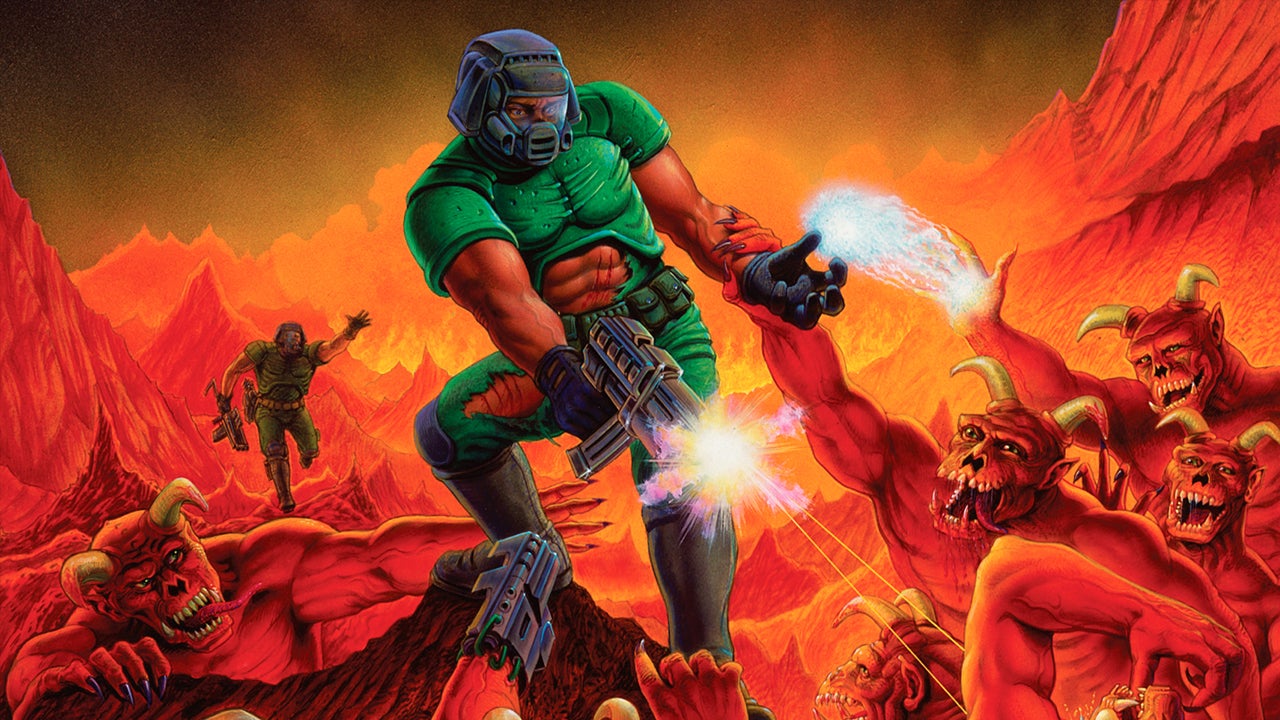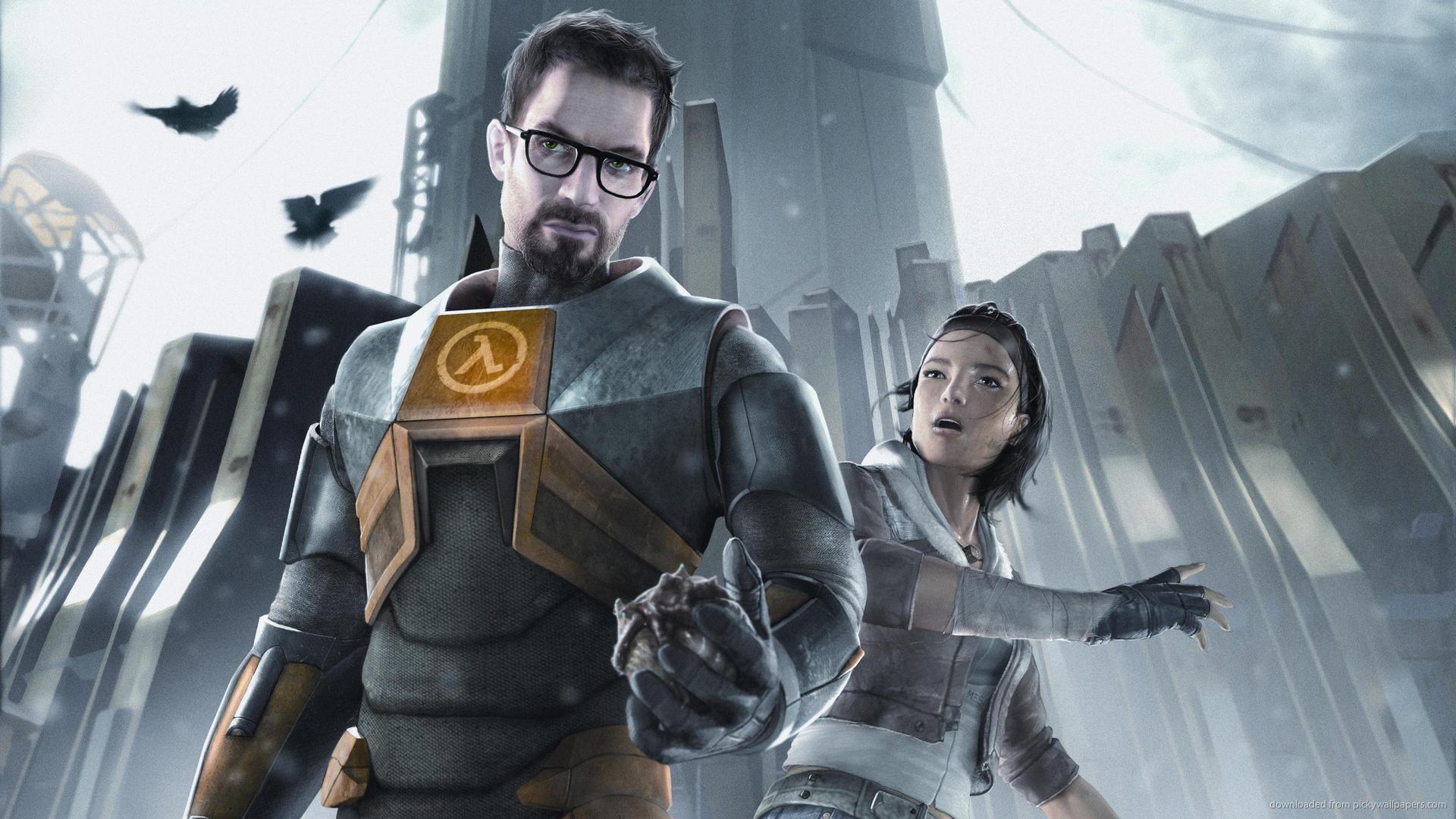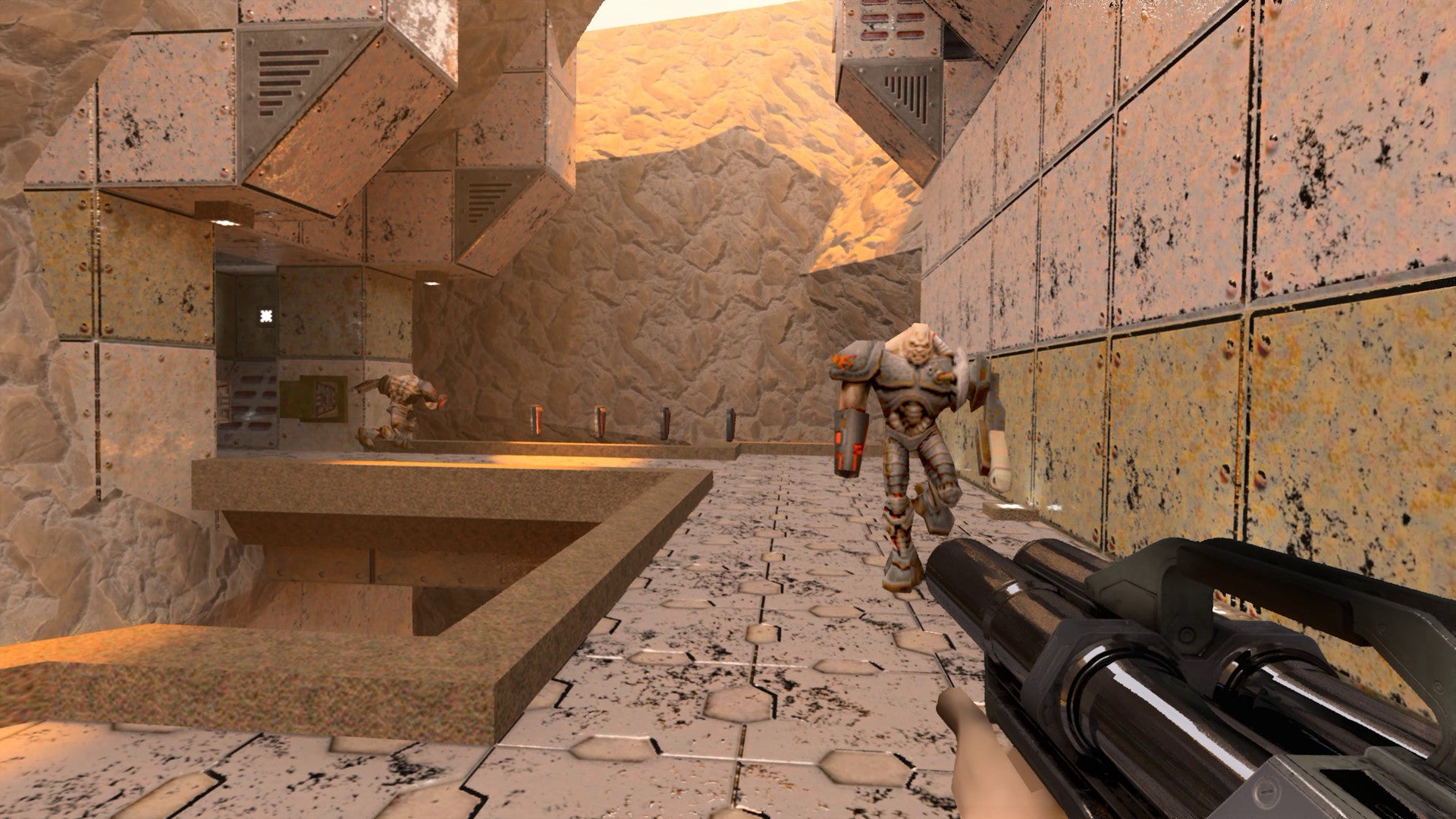Products You May Like
Ion Fury is the latest in a long and enjoyable line of boomer shooters I’ve ticked off lately. The two of us were bound to intersect – me, a 36-year-old with a professional sideline in harping on about the ‘90s for gaming sites; Ion Fury, an uncomplicated corridor shooter running on Duke Nukem 3D’s old game engine. I played, I laughed, I rolled sprites of bombs at little cyborg heads on robot spider legs. And then I got to thinking.
Why do we call them ‘boomer shooters’, anyway? They hark explicitly back to the past, definitely, but did you really have to be there at ground zero when id Software and 3D Realms were putting the first wave of 3D shooters out in order to enjoy games like Dusk, Graven, or Amid Evil? And given that anything ‘boomer’ is a denigration, however affectionate, do these titles really deserve such lightweight, novelty status?
You can hear me saying ‘no’ to myself as you read those rhetorical/not-rhetorical questions, but then I would say that. I remember Euro 96, and when Freddos were 10p, or something. Probably the more interesting question is why the term is used by developers, publishers, and commentators alike. And I think it’s about long tail economics.
At the time of Doom, Quake, et al, there was a cultural monomedia. We all read the same magazines, watched the same small selection of TV channels, and the handful of radio stations available. If a product got mentioned in the monomedia, we all heard about it. Knowing the broad audience it was broadcasting to, the monomedia didn’t wander out into the weeds and tell us about niche stuff very often.
Let’s stay on-brand here with this metaphor and consider Nirvana’s unlikely rise to superstardom in the early ‘90s. Smells Like Teen Spirit was the breakthrough moment, gathering buzz from radio requests and a massive amount of MTV airtime, and that projected three antisocial Washington misfits to a global audience. That meant the band got invited onto loads of interviews, where they mentioned The Meat Puppets and the Melvins, wore Daniel Johnston t-shirts, wrote ‘FUHGAWZ’ on their shoes (an intentional misspelling of Fugazi) and introduced kids to a slew of underground bands they’d otherwise never had heard of. MTV was never going to recommend Daniel Johnston to you of its own accord – too niche, thankyouverymuch – but thanks to a bigger act shining a spotlight on them, the outsider artist met the monomedia’s audience.

Then came the internet, diversity of voices, outlets, opinions, and services. Products no longer had to get mainstream exposure to find their people, because we now knew how to seek them out. Where musical genres once felt impossibly vague (did fellow ‘grunge’ acts Nirvana and Alice in Chains sound anything alike?) now they were absurdly specific. Crab core. Minimal house. Simpsonwave. That happened so that the 27 people on the internet who wanted to listen to that incredibly specific musical movement could easily find the entire culture. It could all fit on a subreddit or a Spotify playlist.
Same goes for games. In an era when 30 games are released every day on Steam alone, do you want to market your new title as a ‘retro-inspired 3D shooter with classid id-style level design and frenetic gunplay’ and hope for the best, or do you call it a ‘boomer shooter’ like everyone else inevitably will?
Doing so gets your game featured in the ‘upcoming games’ videos of content creators who focus only on that genre. It gets it mentioned in that genre’s small but dedicated subreddit. Simply by being reductive about what your product is, you ensure it finds its audience. Ergo, developers lean into pejorative genre tags like walking sims, boomer shooters, and even more problematic delineations like Eurojank.
But that doesn’t alleviate the feeling I get when I see the words ‘boomer shooter’ and picture my mate’s dad in a ‘CAUTION: HEAVY DRINKER’ t-shirt, pint in each hand, doing the twist at Thorganby Beer Festival. And that’s unfair on games like Dusk, and Ion Fury, and Graven, and Prodeus, and Bolter.
Because whether or not you give two hoots about Facebook, boasting about knowing what a floppy disk is, arguing with the GPS or other boomer preserves, the very fact that our medium is now mature and storied enough for a particular style of 3D graphics to evoke nostalgic feelings is cause for celebration. We’re on a similar footing to cinema, which uses stylistic elements to look back on itself, as The Artist did in 2011. Or the music industry, where recording to tape and making the drums deliberately sound a bit shit is a valid creative choice in the name of evoking the ‘70s. Isn’t that right, Tame Impala?
It might not seem like it, but the reappearance of sprites with angry mugs shooting at us is an indication that we’ve deepened the well of gaming culture. That it’s now possible to be faux-’90s. To look basic for effect, in a way we find beautiful, and not using a visual language that harks immediately back to the very beginning of games. There are now shades of subtlety within what’s considered ‘retro’. As a creator, you don’t have to restrict yourself to a 2D plane and 8-bit visuals for people to understand you’re conjuring some point in history before right now.
There’s another benefit to games like this – they’re really, really, really enjoyable. Thank you, I know – it’s insightful critique like this that keeps me employed. But really, though. They are. And that also reminds us something about the journey shooters have been on over the last 20 years or so.
When I was getting into gaming, shooters were the Hollywood A-listers of gaming. The Olympic 100m sprint final. The magazine-cover-courting main events within which you’d inevitably see the latest jump forward in cutting edge graphics, the best stories, the most riotous sounds. For a few years there, each new major FPS release was proclaimed the new ‘best game ever’.

But then it got complicated for shooters. Half-Life told an actual story, in real-time, without cutscenes. Deus Ex looked like a shooter but had all kinds of RPG elements and non-linear level design. Making the new ‘best game ever’ became a more expensive project over time, and as we ticked over into the 2000s, many shooters tried a bit too hard to tell a story and forgot to make the shooting any good. Or gave up entirely on the narrative and made multiplayer-only shooters. By the 2010s, nobody could really compete with CoD anymore, and even that wasn’t stupendous itself. Shooters had become too unwieldy, too laden with expectation and budget and dev teams working across five studios around the world, trying to be everything at once.
So how does Dusk manage to outdo a game like that, without the five studios of talented devs or the multiplayer modes or the co-op zombies or the loot boxes or film stars in the VO booth? By trimming away at the experience, until there isn’t an ounce of fat on it. Boomer shooters are reductive for effect, yes, and they encourage us to laugh at what we considered ‘badass’ or spectacular in 1996, that’s definitely part of their fun. But the elements they leave intact are generally diamond-strong.
They remind us that clever level design, good weapon feedback and that magical alchemy of art assets and sound design that creates atmosphere… well, that’s enough. That’s all we were ever looking for from the genre. All the other bits that got tacked on over time, they were basically a big misunderstanding. Creators added them because they could, because technology was moving at a rapid pace that allowed it, but we were only excited about the new bits because they were new. Not because they made a shooter a better game.
And really, truly, it doesn’t take somebody old enough to find themselves on a public freakouts video recast as an Oblivion NPC to recognise that. Boomer shooters are for young gamers just as much as they’re for nostalgics. Because they’re really just shooters without the fat.
